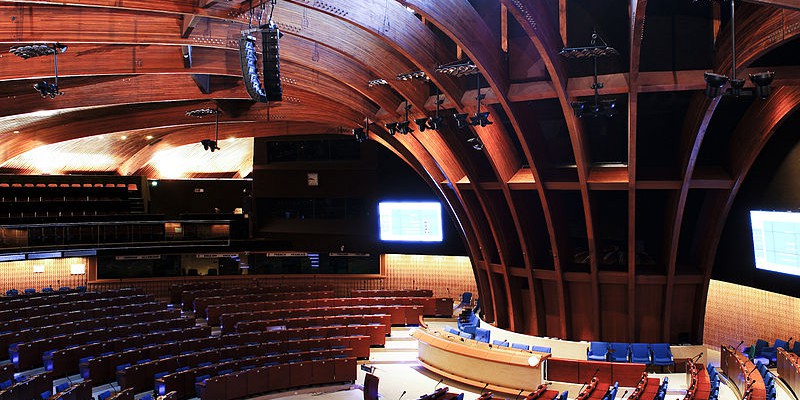A famous case of state censorship in Austria highlights the tendency of governments to pander to the majority, leaving controversial views unprotected. By Michele Finck.

The case
In 1985, the Otto-Preminger Institute (OPI), an art-house cinema specialising in alternative films, planned to show a film called Council in Heaven. This satirical tragedy was set in heaven and revolved around the idea that syphilis is God’s punishment for man’s fornication and sinfulness during the Renaissance, especially at the court of the Pope. The Christian creed is caricatured throughout. The Institute, which is based in the Austrian Tyrol, had undertaken significant efforts to prevent Tyrol’s large Catholic community from accidentally seeing the film by explicitly warning that the content might be offensive and by preventing those under 17 from seeing it, in accordance with the law.
Before the first showing, the public prosecutor initiated proceedings against The Insitute’s manager at the request of the Innsbruck diocese of the Roman Catholic Church for disparaging religious doctrines (please link here to Austrian law), a criminal offence in Austria. As a consequence, the film was seized and forfeited.
In front of the European Court of Human Rights, OPI’s Director argued that by seizing and subsequently forfeiting the film, the Austrian government had violated his right to freedom of expression, as enshrined in Article 10 of the European Convention on Human Rights. The Austrian government maintained that the measure was aimed at the protection of the religious feelings of Tyrol’s Catholic community and the prevention of disorder.
The Court sided with the Austrian Government and held its actions to be justified. It argued that the case involved “weighing up the conflicting interests of the exercise of two fundamental freedoms guaranteed under the Convention, namely the right of the applicant association to impart to the public controversial views and, by implication, the right of interested persons to take cognisance of such views, on the one hand, and the right of other persons to proper respect for their freedom of thought, conscience and religion, on the other hand.” That the seizure and forfeiture of the film were aimed at preventing an “abusive attack on the Roman Catholic religion according to the conception of the Tyrolean public” and that “the fact that the Roman Catholic religion is the religion of the overwhelming majority of Tyroleans” could not be disregarded. The Austrian authorities had “acted to ensure religious peace in that region and to prevent that some people should feel the object of attacks on their religious beliefs in an unwarranted and offensive manner.” The Court concluded that, given that the national authorities had balanced these considerations against the freedom of artistic expression before taking steps to prevent the film being shown, Article 10 had not been violated.























reply report Report comment
Although I completely disagree with the decision of the Court and side with the dissenting opinions regarding the broad range of expressions that are covered by the right of freedom of expression (it is the way it has been understood by the Constitutional Court in Colombia, which is one of the most activist courts in the world), I do wonder at the idea of proposing a move from balancing rights to establishing rigid categorisations where some rights in every case have primacy over others. This could lead to more abuses by the state and to arbitrary decisions by courts. I would still defend the balancing of rights, although I would encourage the European Court to follow the lead of other more progressive courts.
reply report Report comment
This sort of expediency is often excused by referring to the commonly-accepted and rarely challenged notion that the judges or politicians have to ‘balance’ opposing rights. It should not be a question of balancing rights – it should be a simple matter of deciding upon which rights have primacy. In this case, whilst we might wish to protect people from having their religious beliefs insulted, this should not be allowed to interfere with freedom of expression. Free speech must have primacy. If we don’t have free speech, then we can’t even properly discuss what other rights we ought to have.